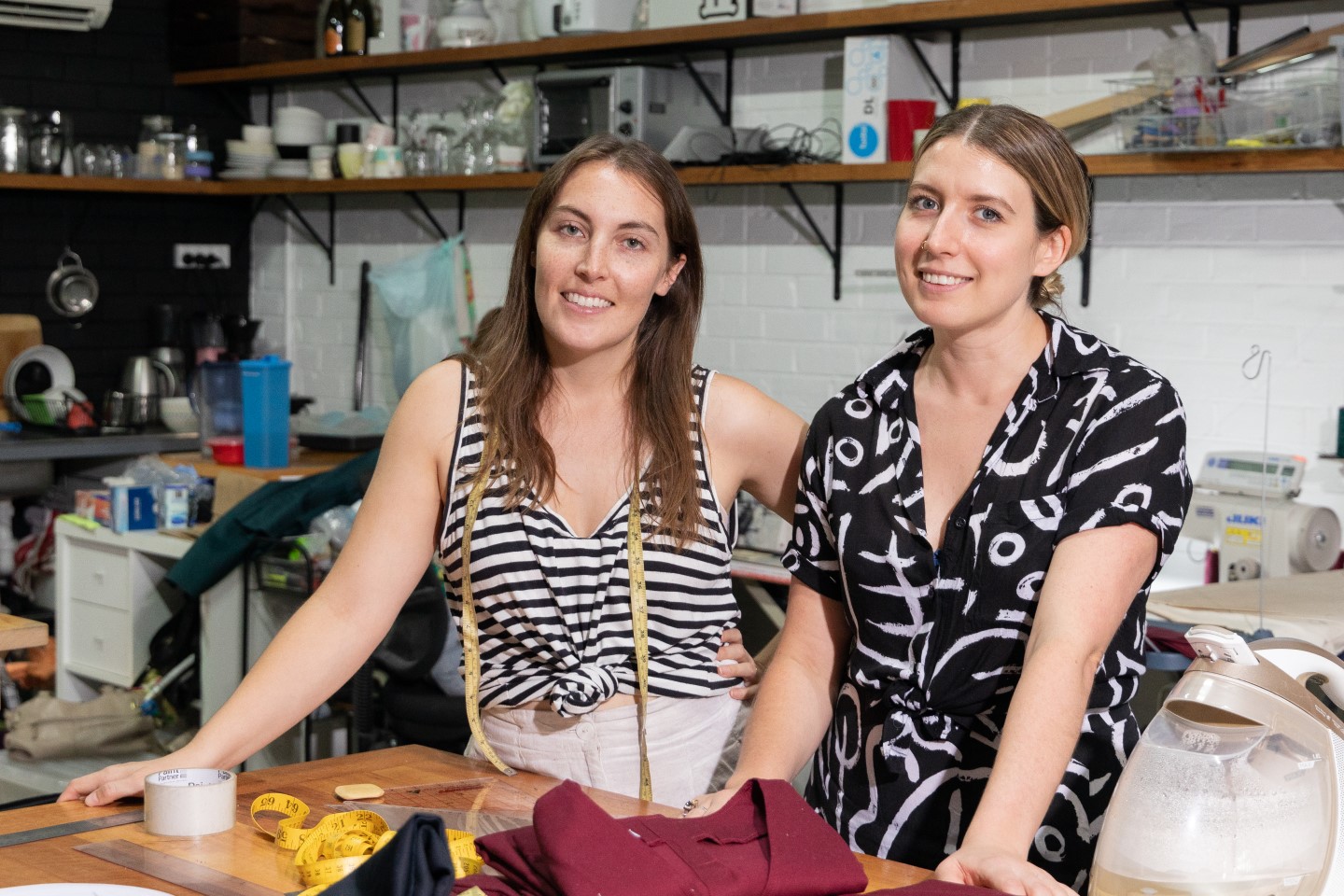Hold the whiskey and the luxury dresses, WA manufacturing has shown its dynamism by shifting to sanitiser, scrubs and masks.


Hold the whiskey and the luxury dresses, WA manufacturing has shown its dynamism by shifting to sanitiser, scrubs and masks.
The economic dominance of Western Australia’s enormous energy and mining projects can sometimes push the state’s manufacturing capability to the sidelines, at least in terms of public awareness.
In recent weeks, however, some local businesses have highlighted the state’s entrepreneurial spirit by adjusting their focus from consumer discretionary goods to medical needs, both out of necessity and social concern.
(click here to view a PDF version of the full 12-page lift-out)
Sanitiser, medical scrubs and reusable face masks are among the healthcare essentials being produced by local businesses.
That adds to some existing medical manufacturing capacity in WA, including international giant Pfizer’s 24-7 facility in Bentley that makes vials of cancer medication and sterile solutions, and Osborne Park-based Pelican Manufacturing, which produces face shields and other items.
Medical experts at the Harry Perkins Institute of Medical Research have quickly adjusted focus to the manufacture of face shields for doctors, and are also engaged in a plan by Minderoo Foundation to procure testing kits.
The two women behind Mount Hawthorn-based fashion label Ilka have added medical scrubs to their traditional lines of womenswear, wedding dresses and alterations.
Scrubs is the term used for outfits worn by medical professionals that are easy to wash and are used under protective equipment.
Co-founder Erin Taylor told Business News the move into medical wear was inspired by a customer.
“One of our customers contacted us, she’s a doctor, she usually doesn’t wear scrubs but needs them at the moment,” Ms Taylor said.
Many doctors who otherwise dressed in professional clothes were preparing for a potential surge in cases of COVID-19 and needed scrubs, she said.
Since then the designers have sold out of a first batch of 80 gowns, with 300 metres more fabric on the way for a second batch.
Ms Taylor estimated production capacity would be about 50 sets per week, with demand driven by a few factors.
“Some people might have a shortage with their regular suppliers,” she said.
“Some might buy from overseas.
“We’ve had heaps of people asking for fun ones.”
Ms Taylor runs Ilka with her business partner, Kate Wilks, with four people employed in the studio.
Production of scrubs has kept the team busy as the economic environment softens.
“The main source of our revenue ordinarily is foot traffic to our store; we have our own online presence but unless you’re a really big player you won’t do a heap,” Ms Taylor said.
“This has really boosted us in the past couple of weeks.”
Perth-based label Hoodedwept has also been offering its services to medical professionals.
The label, which has previously appeared on runways in Paris, was founded by Neil Sheriff.
Mr Sheriff said his autumn and winter season lines had already been produced so, with restrictions on social distancing, he had changed his retailing model to allow customers to view pieces by appointment.
He said that, given the additional time he now had on his hands and availability of materials, he wanted to help.
“It was something I felt compelled to do, it’s silly to have this production base and not use it,” Mr Sheriff told Business News.
“We’ve got the machines, the fabric, I’m happy to bang out batches when they run low.
“We are trying to help wherever we can.”
Mr Sheriff said he had registered with six medical businesses around Perth offering to supply, and had produced for some individuals.
The masks would be made free of charge if those businesses had supplies run low, Mr Sheriff said, although most had sufficient numbers for now.
Hoodedwept had donated a batch of masks to Los Angeles, where a friend operated a medical centre that was running short.
Those masks came with his brand’s flare, too, coloured black to fit Hoodedwept’s monochromatic theme.
Mr Sheriff said retailing had suffered an immediate hit, although he was more optimistic than most about the sector’s long-term future.
“The whole thing is quite surreal,” he said.
“Everyone pulls together and becomes communal.
“There are small fashion production bases all around [Perth], but because we’re not known for it … it’s like a secret agency.”

Colin La Galia says the company will be making and donating hand sanitiser.
Raise a glass
A number of distilleries and breweries have moved into production of hand sanitiser, including Illegal Tender Rum Co, Whipper Snapper Distillery, Spinifex Brewing and Limestone Coast Brewing.
For Whipper Snapper, it was a matter of survival.
Co-founder Alasdair Malloch created a joint venture with Labwest Minerals Analysis and Ferngrove Wine Group to produce medical-grade sanitiser after restrictions to deal with the pandemic punched a hole in his business.
“We had international tourists drying up,” Mr Malloch said.
“Then all the market expo events cancelled on us.
“Then the shutdown of cafes, cellar doors … that killed our front room.
“Then the [alcohol restriction] policy, we could only sell one bottle.
“We either had to find a way to survive or we were dead.”
He said the period in March through which he stitched the new business model together was one of the toughest in his life.
Whipper Snapper also benefitted from a clarification of rules by the Therapeutic Goods Administration, which simplified the approvals process to sell sanitiser in the market.
“Now we have some hope,” Mr Malloch said.
“It’s come together really, really nicely, we’d normally take months to release a new product.”
For now it’ll keep people in the business employed.
“We’re not pricing it to make money out of it, we see it as survival, and we want to make it as cheap as we can,” he said.
However, Mr Malloch said it was unknown how long the increased demand would last, and whether traditional supply sources would catch up.
Integral to the plan is Ferngrove, which is supplying 15,000 litres of wine per week, enough to make 1,500 litres of sanitiser.
Labwest will ensure the sanitiser reaches suitable quality standards.
That Malaga-based analytics business is another example of how companies are adjusting.
Traditionally, Labwest is focused on mining work such as trace element analysis.
Managing director Brad Whisson said quality control was vital, and some other hand sanitisers on the market had a much lower purity, at around 20 per cent alcohol content compared to the regulated 80 per cent.
“It’s [20 per cent product] worse than nothing because people think their hands are safe,” Mr Whisson said.
He said after Labwest endured the mining downturn, he knew how Mr Malloch felt when Whipper Snapper came under pressure.
“We’ve got very good supply lines,” Mr Whisson said.
“We’ve got good relationships with people for bottles, chemical suppliers.”
Bentley-based manufacturer Epichem is a subsidiary of ASX-listed PharmAust Manufacturing, one of the state’s biggest suppliers of chemicals for medical purposes.
In recent weeks, however, it has added hand sanitiser to its repertoire to donate to the healthcare and aged care sectors.
“How much we produce will depend on raw materials,” CEO Colin La Galia said.
“We’ll make as much as we possibly can.”
Epichem illustrates, however, that a level of medical manufacturing capacity is enduring in WA.
Mr La Galia said a large proportion of drugs the company produced were shipped to Europe and the US in normal circumstances.
He said Epichem’s competitive advantages included the quality of using an Australian lab and respect for intellectual property here, compared to other businesses in India and China.
The exchange rate and research and development tax incentives also helped, Mr La Galia said.















